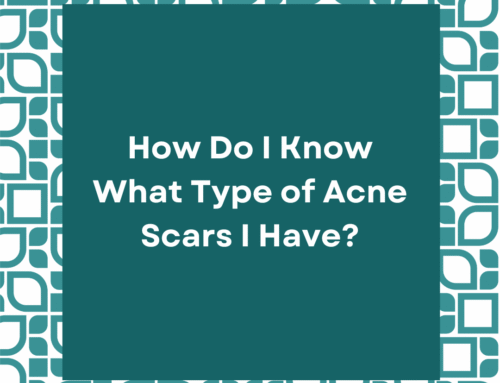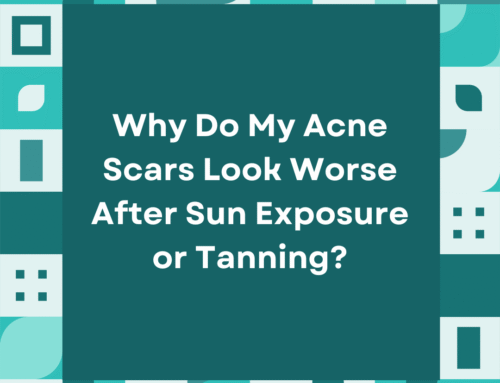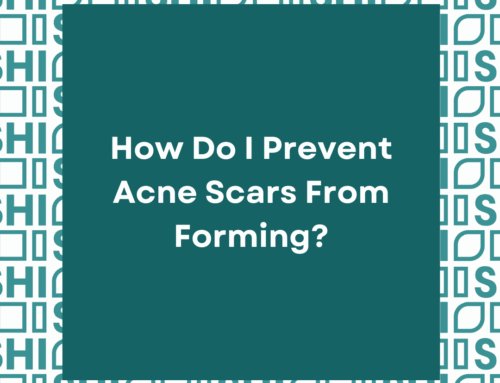Dietary Changes to Prevent Acne: How-To Guide on Preventing Acne with Healthy Glowing Skin
Acne affects the majority of teenagers across the world. In fact, many would argue that getting acne is basically a rite of passage for adolescents.
But what exactly causes acne? Hormonal changes during puberty, specifically fluctuations in estrogen and testosterone, are the leading cause for acne breakouts. Sudden changes in hormone levels lead to excess oil production in the skin, which clogs pores and provides a feeding ground for bacteria.
While it is hard to control natural hormonal changes during puberty, there are essential changes you can make to your diet to control your acne and prevent scarring.

Min, Seonguk et al. “Fractional Microneedling Radiofrequency Treatment for Acne-related Post-inflammatory Erythema.” Acta dermato-venereologica 96 1 (2016): 87-91 .
What should you avoid?
Diet plays a huge role in exacerbating acne. This is because food consumption can really affect hormone levels in the body, which can increase sebum production.
Sugary foods
First, high-glycemic index foods should be avoided as much as possible. When consumed, blood sugar levels spike, which causes insulin-like growth factor 1 (IGF-1) to be released into the bloodstream. IGF-1 has been shown in numerous studies to contribute to hyperkeratinization (build-up of dead skin cells in the hair follicle) and oil production.
Together, these processes can lead to clogged pores, promoting bacterial colonization. The swollen red appearance of acne can be attributed to the potent inflammatory response to the infection.
Examples of high-glycemic index foods include soft drinks, white bread, potatoes, sweet treats, and other sources of refined sugars.
Dairy products
Dairy and whey protein products also have similar effects: they promote insulin and IGF-1 secretion. A review on 80,000 children, adolescents, and young adults showed that dietary intake was correlated with higher levels of these two hormones and an overall occurrence of acne. This correlation was still observed in individuals who consumed dairy in relatively low amounts or frequencies.
Many of our patients at SHI ask what foods contain dairy that they may not be aware of. For instance, many patients already know that milk and yogurt are dairy products. However, foods such as chocolate, bread, salad dressings, and some margarine products also contain dairy.
If consumed frequently, the amount of dairy can add up and cause significant changes to your skin.
More recent studies have shown that consumption of whey protein, a popular protein supplement for gym-goers, is linked to acne. More studies are needed to confirm this finding, but many believe that its effects are due to its derived source, which is dairy.
What should I eat instead?
Protein-rich foods
At SHI, we always advocate for foods that are high in protein and low in sugar. Protein is a very important building block for collagen and other scaffolding proteins in your skin. This is especially important if you are prone to atrophic scarring, or skin depressions, after your acne heals. These lesions are due to loss of collagen in the skin, which can be mitigated if you consume an adequate amount of protein in your diet.
High-fiber foods
Fiber provides a wide range of health benefits when it comes to your skin. First, fiber controls the amount of fat that is absorbed through your gut, which helps reduce oil production in your skin. Fiber-rich foods also carry omega-3 and omega-6 fatty acids, both of which carry potent anti-inflammatory properties. Lastly, fiber has shown to restore balance to the gut microbiome and hormonal levels in your body. Recent studies have shown that the gut microbiome and hormonal levels play significant roles in regulating acne breakouts.
Some examples of fiber-rich foods to check-out at the grocery store include fruits (such as pears, strawberries, and apples), beats, broccoli, brussel sprouts, peas, and the list goes on.
Probiotic foods
Probiotics are casually referred to as good bacteria. There are some studies showing that probiotics help decrease IGF-1 levels and inflammation, although the studies are not conclusive. Dairy products like yogurt, kefir, and cheese have probiotics infused in them during the fermentation process. However, keep in mind that dairy products are not healthy for acne. There are a lot of other great sources of probiotics, including sauerkraut, tempeh, kimchi, miso, kombucha, and many more.
Do I need supplements? If so, what supplements should I take?
Supplements are very important for helping you meet your vitamin and mineral needs that otherwise would not be fulfilled through normal meals alone. When it comes to acne, there are numerous supplements that can help mitigate bacterial infection and inflammation.
Turmeric
Turmeric is an age-old spice that exhibits strong antimicrobial and anti-inflammatory properties. These properties are derived from curcumin, the active ingredient in turmeric. Turmeric has been shown to combat diseases, such as arthritis, heart diseases, cancer, digestive disorders, and various other systemic disorders.
It is very difficult to consume raw turmeric (curcumin) in doses high enough to achieve a medicinal effect. This is why turmeric capsules may be the best concentrated form of turmeric to get you noticeable results.
Topical turmeric may also help with your acne. However, topical agents with high doses of turmeric may stain your skin, which is why many people prefer the oral supplement.
Zinc
Zinc is a natural mineral that helps reduce the severity of acne. One study has shown that the severity of patients’ acne is inversely correlated to their blood serum levels of zinc. In other words, patients with more severe acne tend to have lower concentrations of zinc in their bodies. This is not surprising given that zinc has both antioxidant and anti-inflammatory properties.
Oral zinc supplements come in different forms, including zinc gluconate, zinc citrate, and zinc picolinate. One study showed that out of the three forms of zinc, zinc picolinate had the highest rate of absorption. Regardless, any form of zinc supplementation when taken in an adequate dose can help reduce inflammation associated with acne.
Vitamin A
Vitamin A is an essential vitamin for controlling acne. Vitamin A comes in both topical and oral forms. In fact, popular products, such as retinol, tretinoin, and Accutane, are derived from Vitamin A. When applied to the skin, it exfoliates the epidermis and significantly reduces oil production. Because the bacteria that causes acne feeds on sebum, reducing oil with Vitamin A helps stop the proliferation of bacteria by limiting their preferred nutrient.
It is wise to speak to your doctor about Vitamin A supplementation. OTC products are generally safe to use. However, clinical-grade supplements such as oral isotretinoin (Accutane) or topical tretinoin can be very irritating to your skin. It is important to understand how these products may interact with other foods or supplements you are regularly taking.
Vitamin C
Like the other supplements we discussed above, Vitamin C contains antioxidant and anti-inflammatory properties, which helps reduce the severity of acne lesions. Interestingly, Vitamin C is also able to induce collagen synthesis and reduce hyperpigmentation in the skin. Because of these benefits, many patients ask if Vitamin C is also able to help with their acne scars. While it may produce some mild benefits to the overall appearance and texture of your acne scars, Vitamin C alone is not able to effectively treat severe atrophic scars. Clinical treatments, such as subcision or deep chemical peeling, are needed to produce substantial results.
Final words …
Diet plays a very crucial role in preventing and alleviating acne. Making these lifestyle changes is important because leaving acne for too long can significantly increase your risk for developing scars and permanent discoloration.
Sometimes, diet alone is not able to help with your acne. Other interventions, such as steroid shots or clinical-grade topical medicines, are needed to control severe forms of acne, such as cystic or nodular acne.
If you feel that you cannot control your acne on your own, it is best to reach out to a board-certified dermatologist to diagnose the root cause of your acne and prescribe the appropriate treatments.
At the Scar Healing Institute, we have a team of dermatologists who have extensive experience in treating both acne and acne scarring. We are here to support you in your fight against acne.




